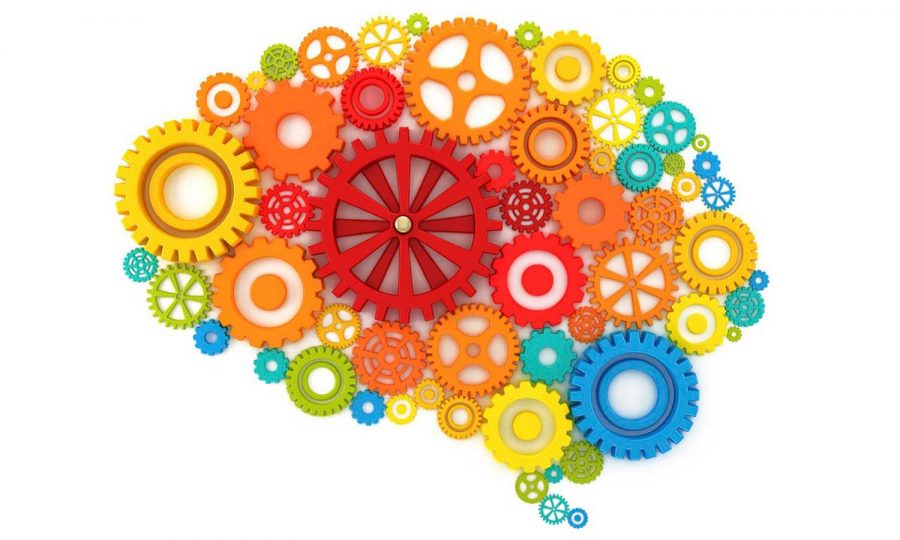The Importance of Mental Health
An abstract representation of how the mind works
October 26, 2016
Mental and physical health are both critically important, but aren’t treated as equals. Physical health is ordinarily given the priority over mental health, and mental health problems aren’t regarded with the same understanding. A stigma surrounds having a mental disability or illness. This is seen in the workplace as people with a mental disability “are likely to earn 20% to 40% less money than others. They are also two to four times as likely as other employees to be terminated from a job”(Harvard Health). In addition to this it can seem weak and like an excuse to use a mental health problem to get special treatment, to stay home, or to just take a day without interacting with other people. However mental health is just as legitimate as physical health. Even though there have been great strides towards better respect of mental health in society, the stigma about it unfortunately still exists. People predominantly put having a healthy body, above feeling okay emotionally.
Some people seem not to treat mental health with importance, due to a general lack of knowledge about it. This isn’t entirely their fault, as it can’t be expected of neurotypicals, or people without atypical patterns of thought or behavior, to understand what mental illnesses cause others to go through, especially since education on this topic isn’t as quite as prevalent as other topics. People with mental illnesses also can have trouble communicating their problems across to someone else. Talking about how psychological problems are affecting someone isn’t nearly as easy as it sounds, and sometimes it’s hard for the person themselves to decipher exactly how they are feeling. This isn’t always the case, but in cases where it does apply it adds to the absence of consideration and knowledge.
This lack of knowledge shows up in many of the common, but untrue, arguments against the significance mental health. An example of this is saying that since mental doesn’t affect someone’s body, or hurt them physically, that it isn’t as important as something that does. However, a mental illness does affect someone physically, just not in a way that can be seen. Just as someone’s arm can be broken, or someone can get a cut, the mind can get sick as well. All of three of these things have actual, physical components to them. The only difference is that since a mental illness occurs chemically, people don’t see the full effects, even though it’s tearing away at the person afflicted from the inside out. The injury is just as real, but is caused by chemical reactions. At least when someone gets physically hurt people understand and feel sorry for them, but that isn’t always the case when someone is hurt mentally. Taking time off for physical injuries is deemed as necessary and is much easier.
Imagine if physical health was treated the same way that mental health is treated by some. Telling someone with cancer that they just need to change their frame of mind and then they’ll feel better, is just as ridiculous as telling that to someone with clinical depression. It doesn’t make any sense because both are caused by physical ailments, one is caused by cells, and one by a chemical imbalance. Another example of this would be saying to someone who is going blind that they just need to try harder and then they’ll be fine, and that they aren’t trying which is why this is happening to them. Saying something like this is still just as absurd as if it was said to someone with a mental affliction, like social anxiety. Jessica Gutierrez (10) agrees saying, “I think that mental health needs to be viewed with more value than it is now.”




































